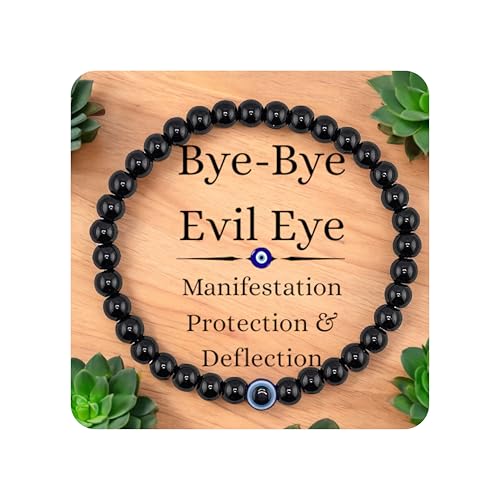12 Spiritual Meanings of Spiritual Discernment: Symbolism & Sacred Messages
Have you ever felt a need to trust your intuition but found yourself unsure? Spiritual discernment helps you in these moments. It reveals the meanings behind your choices and experiences. This process connects you with your true self and the messages life presents. As you explore this concept, you may find insights that change your view. What insights will you uncover on this path?
Key Takeaways
- Spiritual discernment fosters a deeper connection with your true self, guiding you through life’s challenges and enhancing clarity in decision-making.
- Engaging in reflection and quiet contemplation reveals personal insights, strengthening your identity and understanding of life’s purpose.
- Practicing mindfulness and meditation sharpens your focus and awareness, promoting spiritual clarity and the ability to interpret subtle messages.
- Acknowledging and embracing emotions provides essential cues for spiritual growth, serving as indicators for clarity and understanding in the discernment process.
- Cultivating gratitude shifts your perspective from scarcity to abundance, enhancing emotional resilience and supporting a positive mindset on your spiritual journey.
Understanding the Essence of Spiritual Discernment
To start your journey in spiritual discernment, understand its importance. Spiritual discernment is more than making decisions; it’s a path for personal growth.
By practicing discernment, you can tap into wisdom that helps you navigate life’s challenges. Listening closely to your heart and spirit brings clarity in difficult times. Trust your inner voice, which acts as a guide to your true self.
Through this journey, you’ll feel a sense of connection, both to yourself and to a larger community.
Your intuition communicates quietly; make time to hear it. Embrace this journey, and let it change how you view yourself and your life’s purpose.
The Power of Intuition in Decision-Making
Practicing discernment helps you use your intuition in decision-making. When you listen to your inner voice, you can make choices that align with your true self. Trusting your instincts can lead you to new opportunities and deeper satisfaction.
Emotional intelligence is key. It helps you understand your feelings while remaining focused on what feels right. As you follow your intuition, you gain empowerment and a sense of belonging.
This journey is about more than just making decisions; it’s about discovering who you are and reaching your full potential.
Embrace this process. Choose to listen to your intuition and experience the growth it brings.
Connecting With Your Inner Self
Everyone has a unique spark within them. To connect with your inner self, take time for reflection. Sit in silence and pay attention to your thoughts and feelings.
This practice builds self-awareness, helping you see who you’re beyond daily distractions. As you think, consider what makes you feel good and gives your life purpose. Accept both your weaknesses and strengths, as they shape who you are.
In these quiet moments, you can find deep insights. Trust your journey of self-discovery. You’ll feel a sense of belonging within yourself and in the world around you.
Recognizing Signs and Symbols in Everyday Life
Connecting with your inner self helps you notice the signs and symbols in your daily life. You may see small but meaningful moments—these aren’t random occurrences. They’re messages from your intuition and the universe, guiding you to understand more deeply.
Pay attention to repeating numbers, songs that resonate with you, or conversations that come at the right time. Each of these moments is an opportunity to explore their meanings and reflect on how they relate to your journey.
Embrace these experiences, as they connect you to something greater. Recognizing these daily signs enriches your sense of belonging and purpose, providing you with wisdom and guidance that can bring you peace.
The Role of Meditation in Enhancing Discernment
Meditation is a strong tool for increasing self-awareness and improving discernment. Through meditation and mindfulness, you create a calm space within yourself. This allows for clearer insights.
Here’s how meditation can benefit you:
- Calming the Mind: Meditation reduces distractions. This helps you focus on what’s important.
- Increasing Awareness: You gain a better understanding of your thoughts and emotions. This makes it easier to find the truth.
- Enhancing Intuition: Meditation opens your heart. This strengthens your inner guidance and instincts.
Trusting Your Gut Feelings
Meditation calms your mind and improves your ability to trust your gut feelings.
In stillness, you can hear your intuition guiding you. Your gut instincts represent emotional intelligence, connecting you to deeper knowledge.
Trusting these feelings can be difficult, especially in a world that values logic. However, your heart holds truths that your mind may not understand.
Accept these feelings as messages for your growth. By honoring your gut instincts, you create a sense of belonging and authenticity.
You align yourself with the universe’s support. Believe in yourself and let your instincts guide you.
Aligning With Your Higher Purpose
Aligning with your higher purpose is like discovering a valuable part of yourself. It invites you to explore what you truly enjoy and want to achieve. This journey requires reflection and intuition to find clarity in your life.
Here are three steps to help you:
- Self-Reflection: Spend time thinking about what excites you and brings you joy.
- Set Intentions: Clearly define your goals and focus on what matters to you.
- Connect with Others: Surround yourself with supportive, inspiring people.
By following these steps, you create a space where you can grow and feel a sense of belonging.
As you align with your higher purpose, you’ll experience fulfillment and a deeper connection with your true self.
The Influence of Emotions on Spiritual Clarity
Emotions are powerful forces. They shape your spiritual clarity when you let them guide you instead of letting them control you. By embracing your feelings, you create clarity that supports your spiritual journey. Acknowledge your emotions to access their wisdom. This awareness brings insights that might otherwise stay hidden.
Emotions act as indicators of your inner state. They help you understand what aligns with your true self. In this process, you build a connection with yourself and the universe.
Trust your feelings and allow them to direct your path. They can lead to significant spiritual growth and understanding.
Overcoming Doubts and Fears
Doubts and fears can arise at any time. However, they don’t have to control your spiritual journey. You can face self-doubt and manage fear to regain your sense of purpose.
Follow these three steps to overcome:
- Acknowledge Your Feelings: Accept that feeling fear or doubt is normal. Notice these emotions without judging them.
- Seek Support: Find people who share your journey. Talking with others helps you feel connected and supported.
- Embrace Affirmations: Use positive statements to change your mindset. Remind yourself of your inner strength to reduce negativity.
The Importance of Mindfulness in Discernment
Mindfulness is key to improving your ability to notice spiritual messages around you. By practicing mindful breathing, you stay present, allowing your heart and mind to open.
This awareness helps your intuition grow, enabling you to see subtle signs and guidance that you might otherwise miss. As you develop this awareness, you strengthen your connection with yourself and the universe.
This forms a basis for deeper insights. Taking moments of stillness in your daily life invites clarity and understanding into your spiritual journey.
Remember, each breath brings you closer to your true self. With every mindful inhale and exhale, you boost your ability to recognize the truth within you.
Enjoy the journey of discovering the messages that surround you.
Seeking Guidance From Spiritual Teachers
As you begin your spiritual journey, seek guidance from spiritual teachers. These mentors can help you understand your soul better and provide valuable insights. Their wisdom can improve your decision-making and deepen your understanding.
Here are some key points to consider:
- Spiritual Mentorship: Working with a mentor supports your growth and creates a helpful relationship that enhances your journey.
- Guidance Practices: Adopting their practices can add to your spiritual skills and encourage a stronger connection to your inner self.
- Community Connection: Connecting with like-minded individuals fosters a sense of belonging and reminds you that you aren’t alone on this journey.
Engage with these teachings to enrich your spiritual path.
Cultivating Gratitude and Acceptance
Cultivating gratitude and acceptance enhances your appreciation for each moment. It allows you to embrace life as it is. By adding gratitude practices to your daily routine, you can shift your focus from what you don’t have to what’s around you.
For example, writing down three things you’re thankful for each day can bring joy.
Acceptance techniques, like mindfulness meditation, help you recognize challenges without fighting them. These techniques allow you to acknowledge your emotions and experiences. This process builds a better connection with yourself and others.
When combined, gratitude and acceptance practices create a supportive space where love and understanding can grow. Embrace each day with an open heart to feel a sense of belonging in life’s journey.
Frequently Asked Questions
How Can I Differentiate Between Intuition and Wishful Thinking?
To tell apart intuition from wishful thinking, practice simple exercises for intuition and clarity. Focus on your feelings and thoughts. Be honest with yourself. When you are grounded, intuition serves as a helpful guide. In contrast, wishful thinking can lead your mind off track. Engage with these techniques consistently to strengthen your intuitive skills. This practice not only builds your confidence but also enhances your decision-making.
Can Spiritual Discernment Lead to Conflicts With Others’ Beliefs?
Yes, spiritual discernment can lead to conflicts with others’ beliefs. When you trust your intuition, it might challenge others. It’s important to accept these differences. Focus on understanding and respect. This approach can help nurture your spiritual journey while connecting meaningfully with others.
What Role Does Prayer Play in Spiritual Discernment?
Prayer improves your spiritual discernment by enhancing your intuition. It allows you to connect with your inner self, leading to greater clarity and direction. Use prayer as a meaningful practice to enrich your spiritual journey and strengthen your faith.
Are There Specific Rituals to Enhance Spiritual Discernment?
To improve your spiritual discernment, practice meditation and use ritual symbols. These activities strengthen your connection to your intuition. They help you feel more in tune with your path and your community. Engage regularly in these practices to enhance clarity and understanding.
How Does Spiritual Discernment Evolve Over Time?
Your spiritual discernment grows as you focus on personal growth and awareness. You will find guidance that resonates with you, helping you understand life’s challenges. Trust this path, and you will strengthen your connection with yourself and others.

Liza Stockholm is an esteemed spiritual guide and the visionary behind Spiritual with Liza. With a profound passion for empowering others on their spiritual journey, Liza offers a blend of educational content and personal guidance. Her expertise in spirituality is rooted in years of dedicated practice and study, making her a trusted companion for those seeking enlightenment and inner peace.










